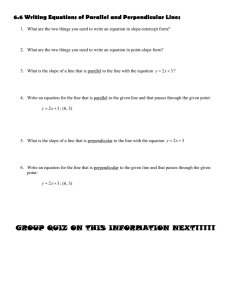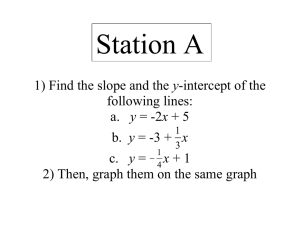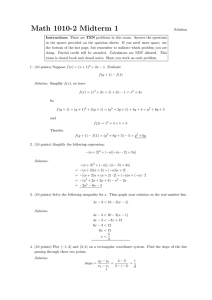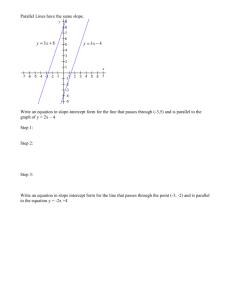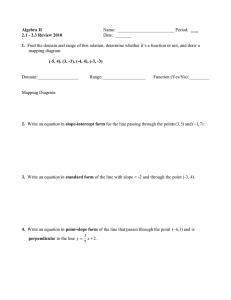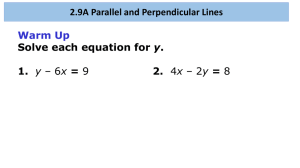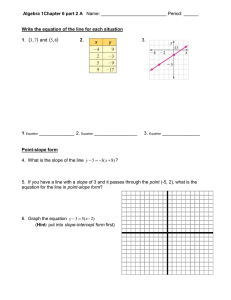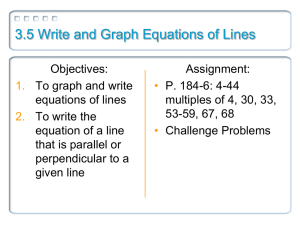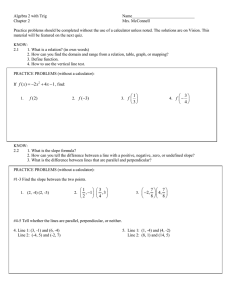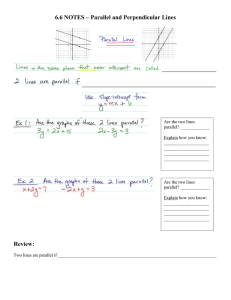WRITING LINEAR EQUATIONS
advertisement
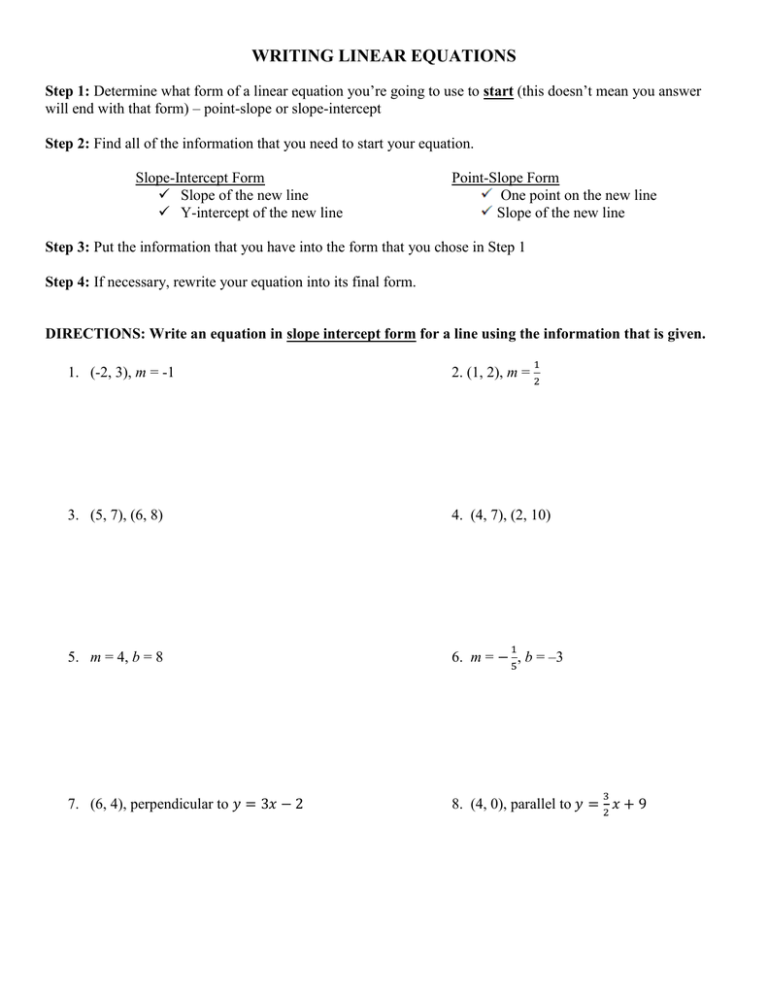
WRITING LINEAR EQUATIONS Step 1: Determine what form of a linear equation you’re going to use to start (this doesn’t mean you answer will end with that form) – point-slope or slope-intercept Step 2: Find all of the information that you need to start your equation. Slope-Intercept Form Slope of the new line Y-intercept of the new line Point-Slope Form One point on the new line Slope of the new line Step 3: Put the information that you have into the form that you chose in Step 1 Step 4: If necessary, rewrite your equation into its final form. DIRECTIONS: Write an equation in slope intercept form for a line using the information that is given. 1 1. (-2, 3), m = -1 2. (1, 2), m = 2 3. (5, 7), (6, 8) 4. (4, 7), (2, 10) 5. m = 4, b = 8 6. m = − 5, b = –3 7. (6, 4), perpendicular to 𝑦 = 3𝑥 − 2 8. (4, 0), parallel to 𝑦 = 2 𝑥 + 9 1 3 1 9. (-5, 13), (-10, 9) 10. (-1, -4), perpendicular to 𝑦 = 6 𝑥 + 1 11. (-8, -4), parallel to 4𝑦 − 2𝑥 = −3 12. (12, 6), perpendicular to 2𝑦 − 8𝑥 = 2 2 13. m = 7, b = − 3 14. (1, 1), perpendicular to 4𝑦 = −𝑥 + 7 DIRECTIONS: Tell whether the lines for each pair of equations is parallel, perpendicular, or neither. 15. 𝑦 = 3𝑥 − 8 3𝑥 − 𝑦 = −1 18. 9𝑥 + 3𝑦 = 6 3𝑥 + 9𝑦 = 6 16. 3𝑥 + 2𝑦 = −5 2 𝑦 = 3𝑥 + 6 19. 𝑦 = −4 𝑦=4 5 17. 𝑦 = − 2 𝑥 + 11 −5𝑥 + 2𝑦 = 20 20. 𝑥 = 10 𝑦 = −2
